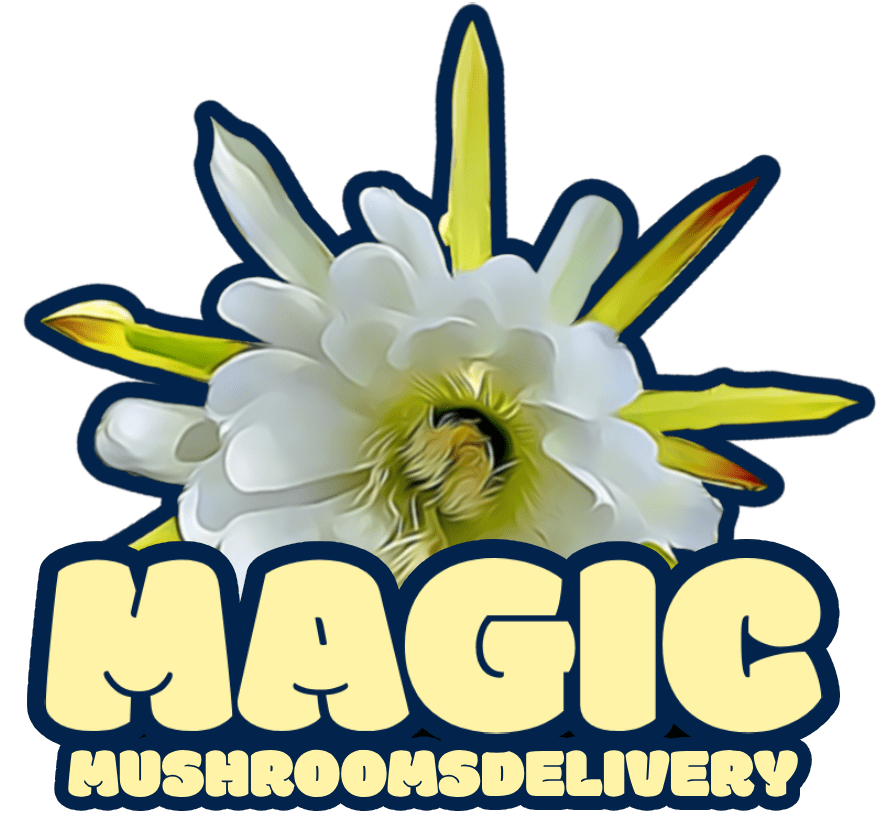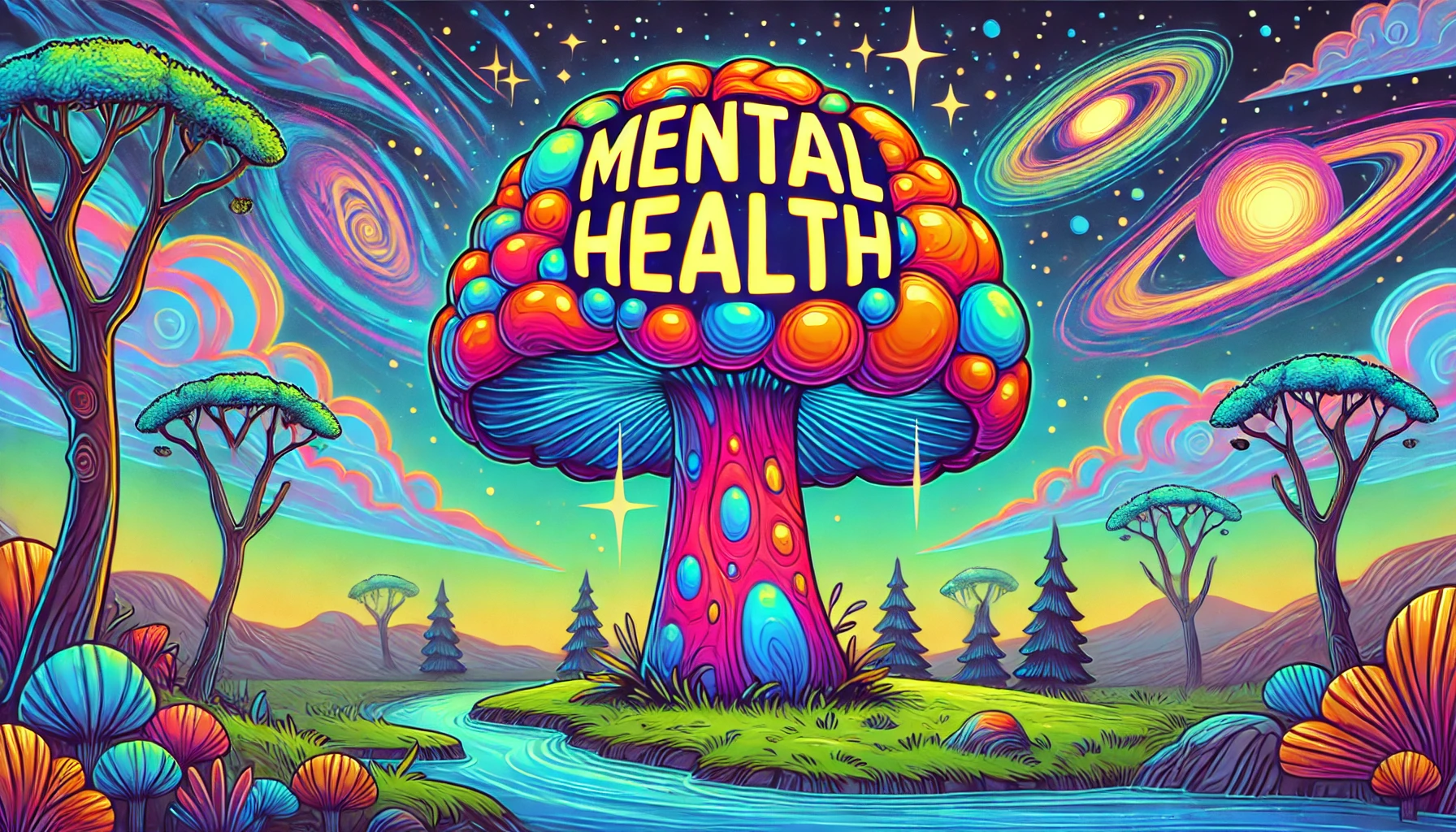

Microdosing Mushrooms for Mental Health: Depression, Anxiety, PTSD, ADHD, Stress, and Bipolar Disorder
Recent studies suggest that microdosing psilocybin mushrooms may offer new hope for various mental health conditions. Join me and lets take a look into the world of mushroom microdosing and examine what the science says about its potential benefits for mental health, backed by research!
Understanding Mushroom Microdosing: The Basics
Microdosing with psilocybin mushrooms involves taking very small amounts – typically a tenth or twentieth of a recreational dose. The goal is not to induce psychedelic effects but to potentially influence brain chemistry positively.
Unlike traditional medications that often work by consistently altering brain chemistry, microdosing is more intermittent. Most protocols involve taking a dose every three days or so. This on-off pattern is thought to prevent tolerance and maximize benefits.
Microdosing for Depression: A Ray of Hope?
Depression is a significant focus of psilocybin research. A 2022 study published in Scientific Reports [1] found that individuals who microdosed reported lower levels of depression. This was in comparison to non-microdosers. The study involved 1133 participants over a one-month period. It showed that those who microdosed psilocybin or combined psilocybin and LSD demonstrated significantly lower levels of depression, anxiety, and stress.
Potential benefits include:
- Mood enhancement
- Increased emotional awareness
Specifically, the study found that psilocybin microdosers showed a 42% lower risk of clinical depression and a 27% lower risk of anxiety compared to non-microdosers. The proposed protocol based on this research suggests a dose of 0.1 to 0.3 grams of dried mushrooms every three days. However, long-term effects remain unknown, emphasizing the importance of professional guidance.
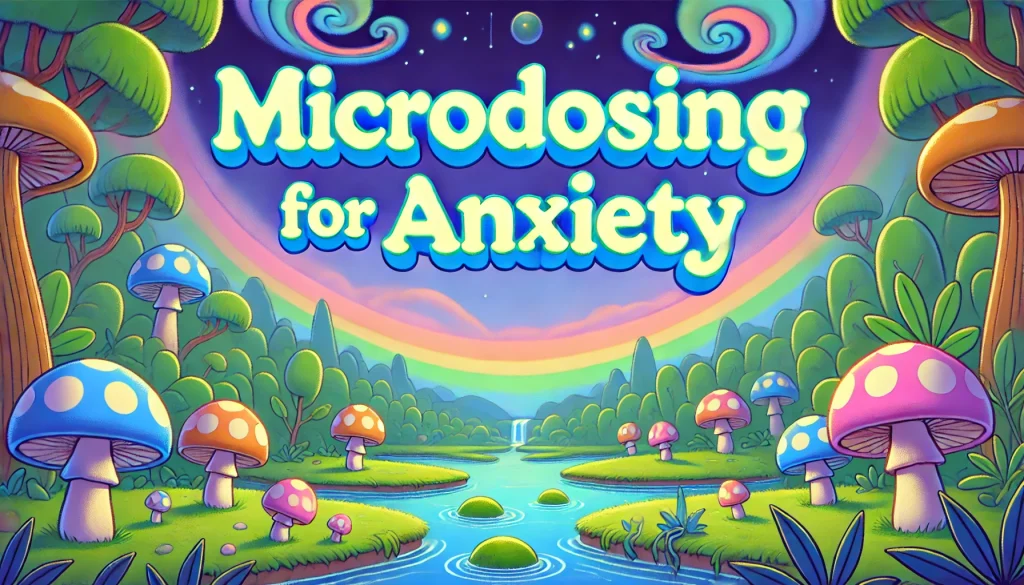

Reducing Anxiety Microdosing Mushrooms
A 2019 study in the Journal of Psychopharmacology [2] found that psilocybin could reduce anxiety and improve mood. This research, which involved a double-blind, placebo-controlled study of 89 patients with cancer-related anxiety and depression, showed significant and enduring anxiolytic and anti-depressant effects.
Potential benefits for anxiety include:
- Reduced overall anxiety
- Improved stress response
The study reported that approximately 60-80% of participants continued to show clinically significant reductions in depression and anxiety at the 4.5-year follow-up. The protocol for anxiety is similar to depression – small doses every few days. Some individuals find that combining microdosing with cognitive behavioral therapy (CBT) or mindfulness practices may amplify the effects.
PTSD and Psilocybin Microdosing
PTSD treatment is another area where psilocybin shows promise. A 2020 study in the Chronic Stress journal [3] suggested that psychedelics like psilocybin might help with PTSD symptoms. This review highlighted the potential of psilocybin to enhance fear extinction learning and promote neuroplasticity, which are crucial for PTSD recovery.
Potential benefits for PTSD:
- Reduced flashbacks
- Improved emotional processing
The study emphasized that psilocybin’s ability to increase cognitive flexibility and reduce activity in the default mode network may help break the rigid thought patterns associated with PTSD. The protocol for PTSD requires careful consideration. Very low doses are typically used, and professional supervision is crucial. This is not a suitable condition for self-treatment.
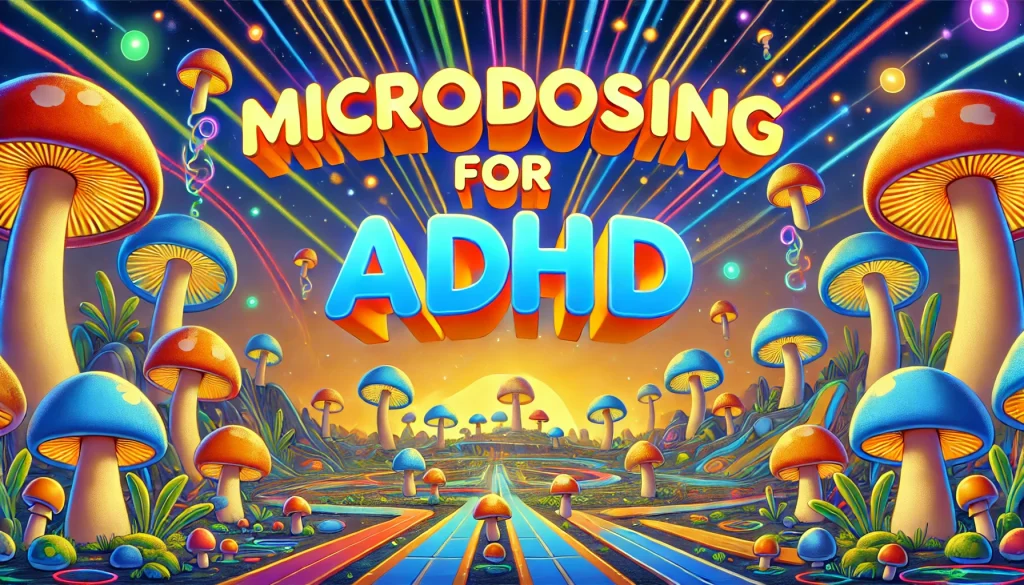

ADHD Symptom Management: Mushrooms for Focus?
Research on microdosing for ADHD symptoms is emerging. A 2018 study in Neuropharmacology [4] found that psychedelics could enhance cognitive flexibility, potentially aiding focus and reducing impulsivity.
Potential benefits for ADHD include:
- Improved focus
- Reduced impulsivity
Some individuals find that microdosing on workdays helps with task management. However, this research is still in its early stages, and consultation with a healthcare provider is necessary before altering any ADHD treatment regimen.
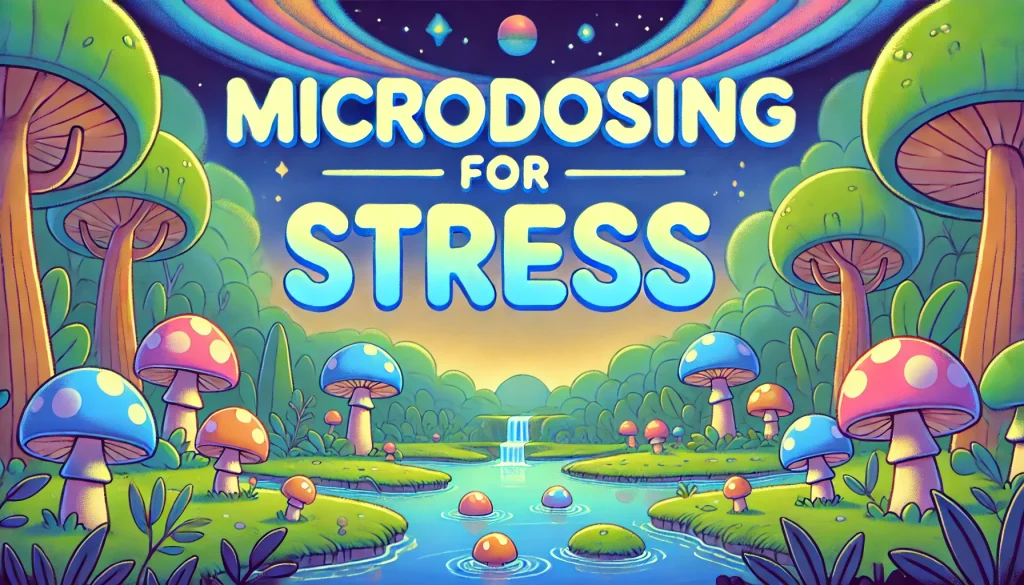

Stress Reduction: Psilocybin’s Impact on Stress Response
A 2021 study in Psychopharmacology [5] found that psilocybin could alter how our brains process stress. This research suggests potential applications for stress management.
Microdosing for stress might help with:
- Enhanced stress resilience
- Improved coping mechanisms
Protocols for stress management often involve microdosing a couple of times a week, combined with other stress-reduction techniques such as meditation or yoga.
Bipolar Disorder and Microdosing: Proceed with Caution
A 2021 review in Frontiers in Psychiatry [6] examined psychedelics and mood disorders, including bipolar disorder. The results are intriguing but require careful consideration.
Potential benefits for bipolar disorder:
- Mood stabilization
- Reduced depressive episodes
The protocol for bipolar disorder requires extreme caution. Very low doses, close monitoring, and continuation of regular medication under professional guidance are essential. The risk of triggering mania necessitates professional oversight.
Integrating Mushroom Microdosing into Your Life
Integrating microdosing into your life requires careful planning and consideration. It’s not just about taking the substance; it’s about creating a supportive environment and lifestyle that maximizes potential benefits while minimizing risks. Here are steps to help integrate microdosing into your life:
- Establish a consistent schedule: Choose specific days for microdosing, typically following a protocol such as one day on, two days off.
- Set intentions: Before each microdose, clearly define what you hope to achieve or work on during this period.
- Start your day mindfully: On microdosing days, begin with a short meditation or reflection to center yourself.
- Plan your activities: Schedule important tasks or creative projects on microdosing days to potentially enhance focus and productivity.
- Keep a detailed journal: Record your experiences, mood changes, and any insights gained during each microdosing cycle.
- Practice mindfulness: Incorporate mindfulness techniques throughout your day to heighten awareness of subtle effects.
- Maintain a healthy lifestyle: Focus on good nutrition, regular exercise, and adequate sleep to support overall well-being.
- Engage in supportive practices: Combine microdosing with activities like yoga, journaling, or time in nature to enhance potential benefits.
- Monitor and adjust: Regularly assess the effects of your microdosing regimen and make adjustments as needed, always under professional guidance.
- Integrate insights: Take time to reflect on and integrate any insights or changes you experience during your microdosing practice.
Remember, the goal of microdosing is to enhance your overall quality of life. It should be viewed as a tool within a broader framework of mental health and personal growth practices.
Risks and Considerations: Important Factors
A 2019 study in the Harm Reduction Journal [7] examined potential risks of microdosing. Key considerations include potential side effects, interactions with other medications, and legal status in many jurisdictions. Long-term effects remain unknown, underscoring the need for continued research and caution.
The Future of Mushroom Microdosing: Ongoing Research
The field of psilocybin research for mental health is rapidly evolving. Ongoing clinical trials are exploring various applications, and attitudes in the medical community are gradually shifting. Challenges ahead include the need for more large-scale, long-term studies, legal and ethical hurdles, and standardization of doses and protocols for natural substances.
Remember, mental health treatment is a complex and individualized process. Microdosing may be a potential tool, but it’s not a universal solution. Continued exploration, questioning, and self-care remain essential components of mental health management.
Tommy Lee
Table of Contents
Canada’s Mushroom Dispensary
Calgary
We deliver magic mushrooms same day in Calgary. Enjoy quick delivery within 60 minutes anywhere within city limits between 10am and 9pm daily.
Canada
Canada's magic mushroom delivery service. We bring shrooms to your place in 1 - 4 days depending where you are in Canada. Shrooms near me? We have you covered.
Be first on the list to get notified about our sales, new genetics and drops before they sell out!

